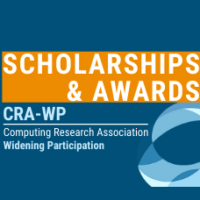2023 Outstanding Undergraduate Researcher Award Recipients
Congratulations to the recipients of the 2023 Outstanding Undergraduate Researcher Award. This year’s nominees are a very impressive group. A number of them were commended for making significant contributions to more than one research project, several are authors or coauthors on multiple papers, others have created papers for major conferences, as well as producing software, apps and algorithms.
Many of the nominees had been involved in successful summer research or internship programs, many had been teaching assistants, tutors, or mentors, and a number had significant involvement in community volunteer efforts.
CRA gratefully acknowledges the support of Microsoft Research and Mitsubishi Electric Research Labs (MERL), which sponsor the Outstanding Undergraduate Researcher Award program in alternate years. Microsoft Research is the sponsor of this year’s awards.
2023 Selection Committee: Michael Hilton (Carnegie Mellon University), Co-Chair, Monica Anderson (University of Alabama), Co-Chair, Jonathan Bell (Northeastern University), Victoria Interrante (University of Minnesota), Evan Peck (Bucknell University), Raghu Ramanujan (Davidson College), Steve Swanson (University of California, San Diego), Matt Weinberg (Princeton University), Rahmat Beheshti (University of Delaware), and Tony Clark (Pomona College).
Thank you to those who volunteered their time to serve on the selection committee for this award.
A list of the winners, runners-up, finalists, and honorable mentions is below.
Awardees
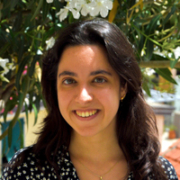 Sílvia Casacuberta Puig
Sílvia Casacuberta Puig
Harvard University
Sílvia Casacuberta Puig is a senior at Harvard University, majoring in mathematics and computer science, while concurrently pursuing a Master’s of Science in computer science. Her research spans a variety of different areas, including matrix algorithms, cryptography, data privacy, algorithmic fairness, machine learning, and computational linguistics. Her work builds on one of the most mathematically sophisticated approaches to fairness (“outcome indistinguishability”), and her investigation has led to intriguing insights where methods developed for algorithm fairness are shedding new light on classic results in computational complexity such as Impagliazzo’s Hardcore Lemma. In addition to doing great research, Sílvia gives back by being a teaching assistant in a variety of computer science courses. In addition, she has shown great leadership by serving as co-director of academics of Harvard Women in Computer Science (WiCS), as a co-president for Harvard Gender Inclusivity in Mathematics (GIIM), and starting initiatives such as the WiCS Undergraduate Research Reaching Groups.
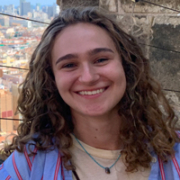 Carmen Strassle
Carmen Strassle
Stanford University
Carmen Strassle is a senior at Stanford University, majoring in physics and mathematics, while also concurrently pursuing a Master’s Degree in computer science. Her research interests are in the area of theory and algorithms. Her work led to improvements in the lower bounds for decision tree learning, which is a basic algorithmic task. She showed how existing results on the inapproximability for parameterized Set Cover yield qualitative improvements over the state-of-the-art decision tree learning lower bounds, but also how her technique can be combined with recently developed composition lemmas for query complexity to give lower bounds even against the much easier task of testing decision trees. In addition to this work, she has also worked on a second challenge that has shown improvements for the problem of Certification with an NP oracle. In addition to her strong research work, Carmen is a lead tutor for math and physics, as well as a course assistant for computer science and math classes.
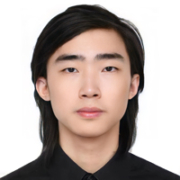 Zineng Tang
Zineng Tang
University of North Carolina at Chapel Hill
Zineng Tang is a senior at the University of North Carolina at Chapel Hill, where he is pursuing his Bachelor of Science degree in computer science and mathematics. Zineng’s research interests are in the fields of machine learning and natural language processing. His research focuses on two main research questions: how could one perception help the learning of another, and how could different perceptions be learned jointly. One example of this is VidLanKD, where his work explores how visual data can enhance language learning. By using a teacher and student framework, the work improves upon previous results, and offers new insights into how language models can learn language beyond text.
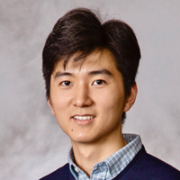 Zhihan Yang
Zhihan Yang
Carleton College
Zhihan Yang is a senior at Carleton College, where he is a double major in mathematics and statistics. His research is in the area of probabilistic machine learning and deep learning. Specifically, his work at Carleton uses multi-armed bandit algorithms to allocate participants to conditions in educational experiments. Using adaptive algorithms in this way offers opportunities to allocate more students to more effective conditions, which is beneficial for students participating in the experiment, but also makes it easier for teachers to conduct experiments in their classes, leading to more effective materials and helping scientists better understand how people learn. Additionally, he has done work on deep generative models for game content generation and deep reinforcement learning for partially observable problems at Northeastern University.
Runners-Up
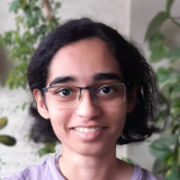 Aparna Gupte
Aparna Gupte
Massachusetts Institute of Technology
Aparna Gupte is a senior at Massachusetts Institute of Technology majoring in computer science and mathematics. Her research interests are in the theoretical aspects of machine learning. Her research fits into two broad themes: the computational complexity of machine learning problems and deep learning theory. She has served as a teaching assistant and tutor at MIT and mentored high school students for a reading program on cryptography.
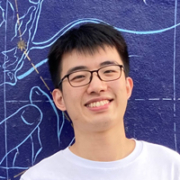 Ziming Mao
Ziming Mao
Yale University
Ziming Mao is a senior at Yale University, where he is pursuing degrees in computer science and philosophy. His research interests lie at the intersection of theory and systems, with contributions to natural language processing and to storage and caching systems. His research experiences have included multiple layers of the computing stack, from algorithms, to applications, to operating systems, and to hardware. His research interests in processing large data sets are partially motivated by his personal interest in astronomy, and Ziming runs a popular Instagram page, @the.astronomy.daily. He helps to organize high school outreach events for students interested in computer science.
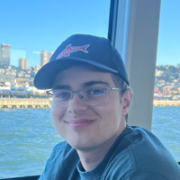 Francisco Pernice
Francisco Pernice
Stanford University
Francisco Pernice is a senior at Stanford University, where he is pursuing degrees in mathematics and computer science. His research interests are in theoretical computer science, and has worked on projects in algorithmic game theory and error correcting codes for deletion channels. He has served as a teaching assistant for eight quarters and volunteered to help train new students for the role.
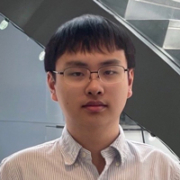 Fengyu Yang
Fengyu Yang
University of Michigan, Ann Arbor
Fengyu (Fred) Yang is a senior at the University of Michigan majoring in computer science with a minor in business. His research interests are centered in computer vision, and he has worked on projects in multimodal perception, semantic segmentation, and crowd analysis. He connects his computer vision research with the real-world by building new datasets that more closely resemble the way that humans interact with the world. He is heavily involved in Model United Nations (MUN) organizations, serving as the president of multiple MUN conferences and leader of MUN classes in high schools.
Finalists
David Cao – University of California, San Diego
Kirsten Chapman – Brigham Young University
Davidson Cheng – Colorado College
Amil Dravid – Northwestern University
Michael Duan – University of Washington
Anya Ji – Cornell University
Laura Lewis – California Institute of Technology
Sizhe Li – University of Rochester
Tongtong Liu – Wake Forest University
Ayana Monroe – University of North Carolina at Chapel Hill
Elizaveta Pertseva – University of California, San Diego
Zeyu Shen – Duke University
Chenglei Si – University of Maryland
Anikait Singh – University of California, Berkeley
Edward Sitar – University of South Carolina
Samuel Tan – Haverford College
Raul Villanueva – University of Washington
Stefan Walzer-Goldfeld – Amherst College
Rui Xin – Duke University
Samuel Yu – Carnegie Mellon University
Yifei Zhou – Cornell University
Honorable Mentions
Anas Awadalla – University of Washington
Adira Blumenthal – University of Rochester
Evelien Boerstra – University of British Columbia
Victoria Chen – Tufts University
Nathaniel Collins – University of Colorado, Boulder
Trung Dang – Purdue University
Xiang Fan – Carnegie Mellon University
Henry Fleischmann – University of Michigan, Ann Arbor
William He – Duke University
Jung Hwan (John) Heo – University of Southern California
Cynthia Hom – Harvey Mudd College
Kevin Jiang – Cornell University
Anisha Kabir – University of California, Santa Barbara
Malik Khadar – University of Minnesota
Shreyas Kharbanda – Purdue University
William Krska – Boston University
Yihe Liu – Georgia Institute of Technology
Angeline Luther – University of Nebraska-Lincoln
Rachel Ma – Brown University
Rachel Masters – Colorado State University
Malia Morgan – Harvey Mudd College
Stephen Price – Worcester Polytechnic Institute
Francis Rinaldi – Illinois Institute of Technology
Jonathan Rogers – Williams College
Elizabeth Seero – Colorado College
Jim Wang – Johns Hopkins University
Eric Xing – Western Kentucky University
Draco Xu – University of Rochester
Rem Yang – University of Illinois
Runlong (Harry) Ye – University of Toronto
Fangcong Yin – Cornell University
Sadie Zhao – Pomona College








